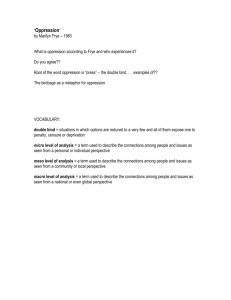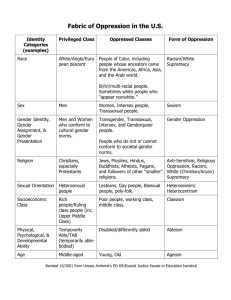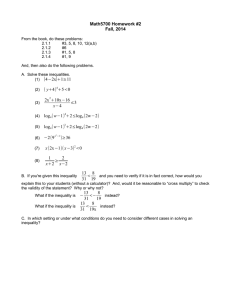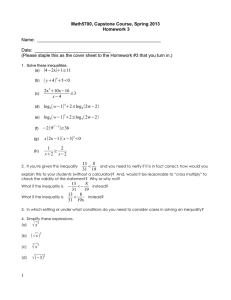– The Courage to Resist Paper #3
advertisement
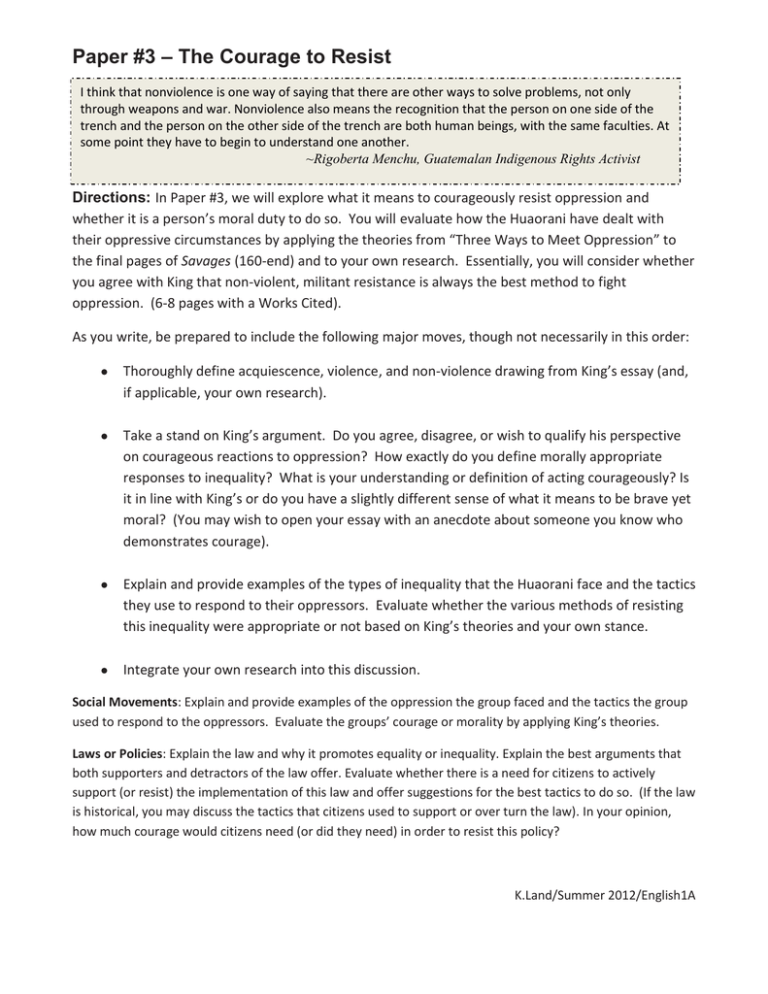
Paper #3 – The Courage to Resist I think that nonviolence is one way of saying that there are other ways to solve problems, not only through weapons and war. Nonviolence also means the recognition that the person on one side of the trench and the person on the other side of the trench are both human beings, with the same faculties. At some point they have to begin to understand one another. ~Rigoberta Menchu, Guatemalan Indigenous Rights Activist Directions: In Paper #3, we will explore what it means to courageously resist oppression and whether it is a person’s moral duty to do so. You will evaluate how the Huaorani have dealt with their oppressive circumstances by applying the theories from “Three Ways to Meet Oppression” to the final pages of Savages (160-end) and to your own research. Essentially, you will consider whether you agree with King that non-violent, militant resistance is always the best method to fight oppression. (6-8 pages with a Works Cited). As you write, be prepared to include the following major moves, though not necessarily in this order: Thoroughly define acquiescence, violence, and non-violence drawing from King’s essay (and, if applicable, your own research). Take a stand on King’s argument. Do you agree, disagree, or wish to qualify his perspective on courageous reactions to oppression? How exactly do you define morally appropriate responses to inequality? What is your understanding or definition of acting courageously? Is it in line with King’s or do you have a slightly different sense of what it means to be brave yet moral? (You may wish to open your essay with an anecdote about someone you know who demonstrates courage). Explain and provide examples of the types of inequality that the Huaorani face and the tactics they use to respond to their oppressors. Evaluate whether the various methods of resisting this inequality were appropriate or not based on King’s theories and your own stance. Integrate your own research into this discussion. Social Movements: Explain and provide examples of the oppression the group faced and the tactics the group used to respond to the oppressors. Evaluate the groups’ courage or morality by applying King’s theories. Laws or Policies: Explain the law and why it promotes equality or inequality. Explain the best arguments that both supporters and detractors of the law offer. Evaluate whether there is a need for citizens to actively support (or resist) the implementation of this law and offer suggestions for the best tactics to do so. (If the law is historical, you may discuss the tactics that citizens used to support or over turn the law). In your opinion, how much courage would citizens need (or did they need) in order to resist this policy? K.Land/Summer 2012/English1A
